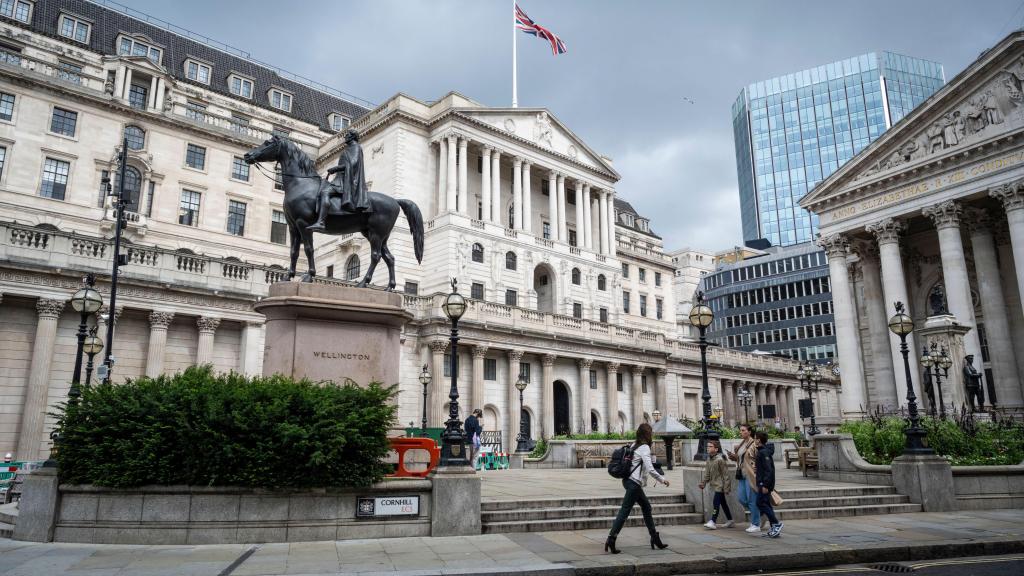Bank of England Lowers UK Interest Rate to 4.75%
The Bank of England has made a significant decision to lower interest rates for the second time in 2023, announcing that additional cuts may follow. However, the likelihood of another reduction before the holiday season has decreased due to concerns regarding inflation stemming from recent political developments and the Labour budget.
In a meeting held on Thursday, the Bank’s monetary policy committee (MPC), which is responsible for setting interest rates in the UK every six weeks, cast an 8-1 vote in favor of reducing the base rate by 0.25 percentage points, bringing it down from 5.0% to 4.75%.
This marks the second rate cut this year; the MPC narrowly voted 5-4 in favor of a quarter-point decrease in August, representing the first cut since 2020, before opting to maintain the rate unchanged in September.
Andrew Bailey, the governor of the Bank, commented, “Should the economy progress as we anticipate, it’s likely that interest rates will continue to fall gradually.”
Nonetheless, Bailey cautioned, “We must ensure inflation stays near our target, which means we cannot lower interest rates too quickly or excessively.”
Market expectations suggest that the prospect for another reduction in December’s MPC meeting has decreased significantly. Investors currently speculate that the Bank could implement two or three rate cuts next year.
Following the announcement, the British pound increased by 0.88% against the US dollar, reaching $1.299, and rose by 0.17% against the euro to €1.202. In contrast, the FTSE 100 index experienced a slight decline of 0.03%, settling at 8,164.15.
Rob Wood, chief UK economist at Pantheon Macroeconomics, expressed his prediction that the MPC would keep rates unchanged in November but might consider a 25 basis point cut in February.
Wood emphasized that the MPC is currently addressing two new inflationary pressures: the political ramifications of the US election and the newly introduced budget.
He noted, “Ongoing inflation challenges may appear persistent to consumers, leading to a more hawkish stance on interest rates from the MPC.”
Economist Thomas Pugh from RSM UK echoed this sentiment, stating that the recent budget and the outcome of the US election have lowered the chances of consecutive rate cuts, though not eliminated them entirely.
Chancellor Rachel Reeves remarked that the rate reduction would be beneficial for many families, acknowledging the substantial challenges facing households following the previous government’s mini-budget.
Reeves’s recent budget, which raised taxes by £40 billion and increased public spending, is projected to enhance economic growth by approximately 0.75% in the short term, according to the Bank, which is a slight increase compared to previous forecasts from the Office for Budget Responsibility.
The MPC anticipates a 1% growth in the economy for the year, downgrade from a previous estimate of 1.25%. They expect growth to rise to 1.5% in 2025, then to decrease to 1.25% in both 2026 and 2027.
While the budgetary measures are anticipated to stimulate economic activity in the near future, they are also expected to contribute to a slight increase in inflation, projected to peak around half a percentage point higher. The MPC now predicts inflation will not return to the 2% target until 2027, a delay from prior expectations, forecasting an inflation rate of 2.8% in the latter half of next year, influenced by rising energy costs.
The MPC also noted that the chancellor’s increase in employers’ national insurance contributions by 1.2 percentage points to 15% would affect wages and possibly lead to lower workforce participation, with long-term salary growth anticipated to decrease tax revenue by £16 billion.
In her budget proposal, the chancellor extended a freeze on fuel duty for another year, while the MPC warned that any future increase in line with RPI inflation would likely add just over 0.1 percentage points to overall inflation.
Looking ahead to 2026, the MPC pointed out that fiscal policy would tighten, potentially helping to stabilize inflation levels.
During the meeting, Bailey and chief economist Huw Pill advocated for the quarter-point decrease, although Pill initially preferred to maintain the current rate. Proponents for the cut cited the ongoing progress toward disinflation.
Recent data from the Office for National Statistics indicated a drop in inflation to 1.7% in September, down from 2.2% in August, well below the Bank’s anticipations. Furthermore, the rate of inflation in services, closely monitored by the MPC, decreased more than expected in the same timeframe.
Catherine Mann, an external MPC member, was the sole voter favoring to keep the base rate at 5%, contending that robust demand driven by the budget warranted unchanged monetary policy.
Notably, the potential implications of Donald Trump’s victory in the US presidential election were not accounted for in the MPC’s economic assessments. The forthcoming 47th president has indicated intentions to impose tariffs that may elevate inflation, compelling central banks to exercise caution in adjusting interest rates.
The US Federal Reserve was also expected to announce a similar quarter-point rate cut later on Thursday, which would lower its federal funds rate to a range of 4.5% to 4.75%, following a previous 50 basis point reduction in September.




Post Comment